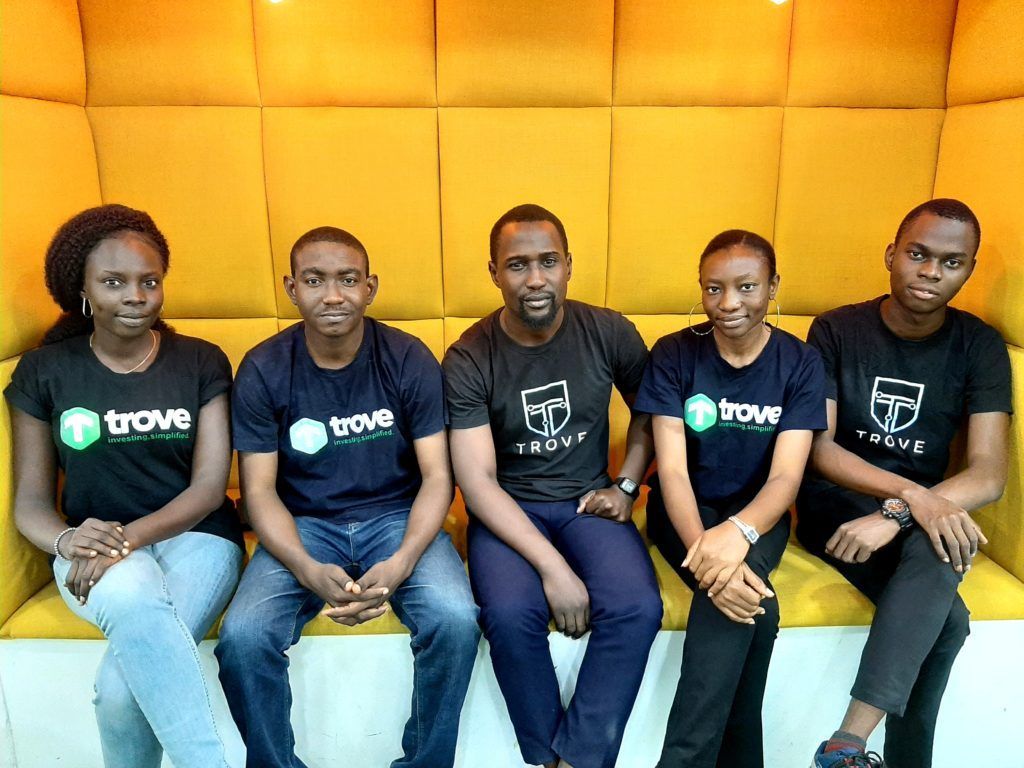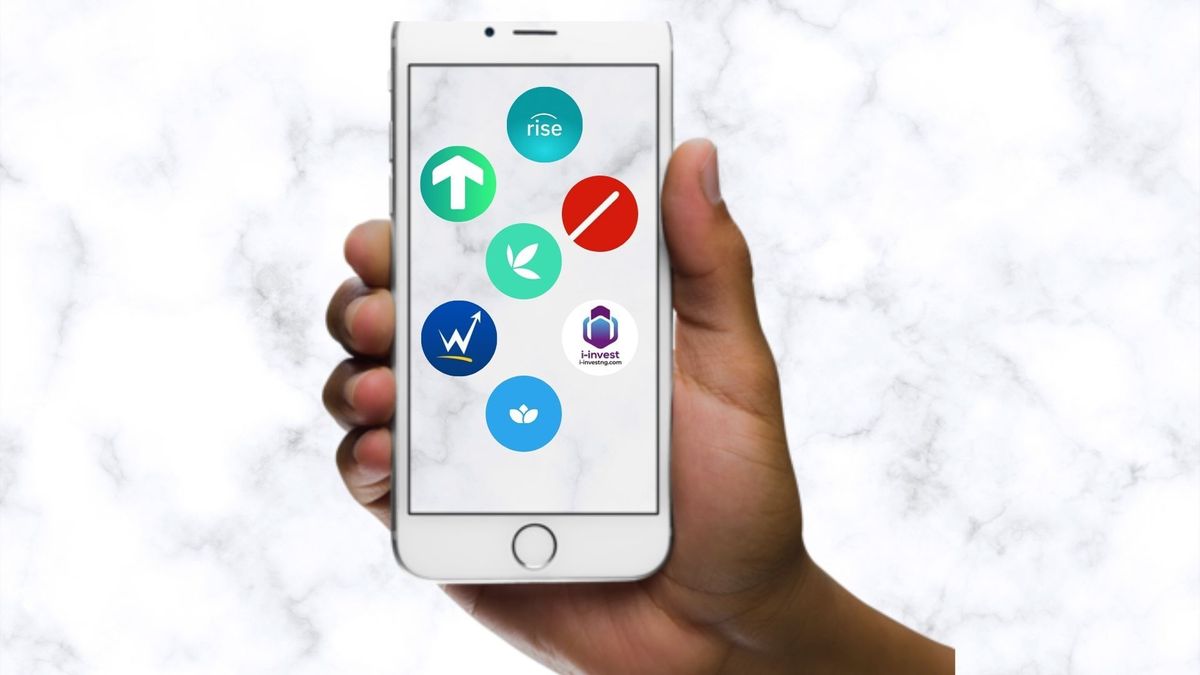We simplified our analysis by comparing the seven apps across four categories: market share, user experience, offerings, fees and charges.
Investment apps have become more popular with young Nigerians over the last one year. They give us the ability to invest and earn money on stocks, treasury bills, bonds, and other kinds of assets.
Democratizing investment opportunities for Nigerians is no small feat. Before investment apps were the norm, getting access to stock markets involved hiring stockbrokers that executed orders on request. Now, from the comfort of your room, you can buy and sell stocks from American and Chinese companies in a matter of minutes. The best part? You don’t need to call anyone.
The advent of investment apps in Nigeria could not be more timely as the Naira has reached significant levels of inflation in recent months. As of the time of writing, currency inflation stands at 12.3%. With such high inflation values, keeping idle money in the bank is becoming less appealing for Nigerians.
Methodology
Since investment platforms are quite diversified, comparing them proved a bit challenging. We were, however, able to simplify our analysis by comparing them across four categories:
- Market share
- User experience
- Assets offered
- Fees and Charges
A number of fintech companies offer investment opportunities as part of their service. However, for the sake of this article, we will be focusing on platforms that offer investment as their core service. Sorry Carbon, Opay, and Cowrywise...
Getting to know the investment companies
Investment is money business. In other words, it’s serious business. Knowing the names and faces behind the companies you’re putting your money into can help with a sense of comfort for users.

The investment app craze started in September 2018 with the launch of I-invest. Created by Sterling Bank in partnership with Parthian partners, the app was designed to help bring safe, secure investments to everyday users. In the same month, United Capital, a leading investment banking group, launched its online investment portfolio management trading platform - InvestNow.
2019, however, was when the democratized movement went into full swing. Trove launched the first micro-investing application for people looking to invest in Nigerian and foreign stocks. It partnered with Sigma Securities (Nigeria) and DriveWealth (United States) to bring borderless investments to Nigerians. The company is led by Oluwatomi Solanke, Desayo Ajisegiri, and Austin Akagu.
Wealth.ng was launched in 2019 by Sankore Securities Limited. The company, led by Titi Odunfa-Adeoye, has over 10 years of experience as an investment and advisory firm. Before heading Sankore, Titi had worked at top financial institutions like PwC, KPMG, Goldman Sachs, and Quantum Zenith.
Bamboo was also founded by Yanmo Omorogbe and Richmond Bassey in 2019. Before founding Bamboo, Yanmo worked as an investment analyst and associate at African Infrastructure Investment Managers. Richmond, on the other hand, worked as the chief of staff at Helium Health. The company partners with DriveWealth in the US and Lambeth Capital in Nigeria to bring users access to stocks from all over the world.

Tosin Osibodu leads the team at Chaka. Before his time there, he served as VP, Produce, and VP Engineering and Operations at Citiserve and GUMCO, respectively. Chaka’s partners include Citi Investment Capital and DriveWealth. The company was founded in November 2019 with its headquarters in Louisiana, United States.
Rise vest was launched in February 2020 by Eleanya Eke (former co-founder of crypto exchange, Buycoins) and Bosun Olanrewaju (ex-Andela fellow). Its focus is on making dollar investments easy for Nigerians.
Market share
The first thing we did was look out for which app was the most popular with users. Of all seven applications, I-invest was the most popular with over 100,000 downloads on Playstore. This is likely because I-invest is backed by a strong organization - Sterling bank, and also the oldest app. It was the first treasury bills app in West Africa.
Rise vest, Chaka, and Bamboo followed with over 50,000 downloads. Trove, Wealth.ng, and InvestNow close up the rankings with over 10,000 downloads each.
In terms of user downloads, this is how they stand:
What assets do they offer?
One thing that stood out when comparing these investment apps was the range of assets they had. Regardless of your needs and level of experience with investing, there’s an option for you.
Risk is the most important factor when deciding on what kind of investment to make, and the platforms seem to have chosen sides along the risk spectrum. For this comparison, we will be grouping the applications into three to help you better understand. The three groups will be low risk, medium risk, and high risk.
One thing you should keep in mind, however, is that no risk is bad. Your choice depends on your risk appetite. While low-risk investments may keep your money safe, they don’t offer much in terms of returns. For instance, Nigerian treasury bills currently offer a 2.67% annual interest. With an inflation rate of over 12%, such earnings will not be able to beat inflation. At best, it’ll help you earn nominal earnings on your investment.
High-risk investments help you earn more, but you also risk losing significantly more money. A good example is the much-troubled Nikola stock ($NKLA). After it’s IPO in June 2020, the stock traded as high as $79 on the NYSE. As at the time of writing, it currently sells for just above $19, a 76% drop in value. If you had invested in $NKLA with N10,000 at its peak, you’d only have around N2400 left.
So, how do the platforms rank on our risk scale based on their offering:
Assets offered by Investment companies
| Rise vest | Chaka | Trove | Bamboo | Wealth.ng | I_invest | InvestNow | |
|---|---|---|---|---|---|---|---|
| Asset control | - | ✓ | ✓ | ✓ | ✓ | ✓ | ✓ |
| Agriculture | - | - | - | - | ✓ | - | - |
| Nigerian Stocks | - | ✓ | ✓ | - | ✓ | ✓ | ✓ |
| US Stocks | ✓ | ✓ | ✓ | ✓ | - | - | - |
| Real Estate | ✓ | - | - | - | - | - | - |
| REITS | - | ✓ | ✓ | ✓ | - | - | - |
| Eurobonds | ✓ | - | ✓ | - | - | ✓ | ✓ |
| T-bills | - | - | - | - | ✓ | ✓ | ✓ |
| ETFs | - | ✓ | ✓ | ✓ | - | - | - |
Note: Asset control means the ability to choose the specific assets your funds are invested in.
Low-risk investment platforms
I-invest: when an organization brands itself as offering “risk fee investment, anywhere anytime,” you know they’re going to be a low-risk platform. I-invest offers a combination of securities that guarantee that your money is safe while you earn. Investment options include treasury bills, Eurobonds, and equities.
Read: 10 Things You Didn’t Know About the i-invest App
Medium-risk investment platforms
Medium-risk investment platforms combine the properties and offerings that can be characterized as both low-risk and high-risk.
InvestNow: On InvestNow, you can access treasury bills, the Nigerian stock exchange(NSE), bonds, and other options that help you earn more. While investing in the NSE could be perceived as high-risk, treasury bills and bonds are low-risk investment options.
Wealth.ng: Similar to InvestNow, Wealth.ng makes this list because it offers a range of options that covers both high and low-risk investment options. You can invest in treasury bills, Nigerian stocks, and even agricultural packages.
Rise vest: It might be a bit of a surprise to find Rise in the medium-risk category, but there’s a good reason for it. The company offers three categories of investment options: real estate, US stocks, and Eurobonds. Eurobond investment returns are guaranteed while the rest have varying levels of risk. That means that you can incur losses on investment in either the real estate plan or US stocks.
However, as an investor with Rise, you won't have control over what assets your funds are invested in. This can be a good thing for new, inexperienced investors.
Read: How Risevest is leveling the wealth-creating field for Africans
For instance, the stocks plan is based on a portfolio of 20+ companies in the company’s index. You invest in the plan, but the company chooses where to put the money and pays you your interest as at when due. You will, however, always be able to check the status of your portfolio at any given time.
Interestingly, Rise is the only company on the list that offers actual real estate investments. Other companies only offer Real Estate Investment Trusts (REITS).
High-risk investment platforms
This category consists of platforms whose focus is mainly on stock exchanges. With all the companies in this category, users are allowed to trade with different stock markets in real time.
Trove: Trove offers perhaps the highest number of options to trade with of all the platforms on the list. Per the Trove website, there are over 4000 stock options to trade on the application. Tradable stocks on Trove include US equities and exchange-traded funds (ETFs), American Depository Receipts (ADRs), Nigerian Stocks listed NSE, and mutual funds.
Chaka: Chaka also offers over 4000 tradable stocks from 40+ countries for users to trade with. You can trade stocks from Nigeria, the EU, the US, China, Indonesia, South Africa, and lots more.
Bamboo: Bamboo has over 3000 assets on offer including US stocks, REITS and ETFS. You can trade shares from top companies like Netflix, Microsoft, Tesla, and Facebook.
Summary:
- I-invest is great for risk-averse investors.
- Wealth.ng and InvestNow are ideal for people looking for a mix of high and low-risk options.
- Rise vest is best if you want to invest in dollar-denominated assets without much risk.
- Chaka, Trove and Bamboo are ideal for people who want a more hands-on approach to asset management.
User Experience
Evaluating the user experience on an app can be somewhat challenging, especially when the aim is to do it objectively. For this section, we have opted to examine the user experience based on a combination of the play store ratings and our observations when we tried to use the apps.
Playstore ratings are a good indicator of how users feel about the application when they use them.
Based on the chart, you can see how well all the apps perform. On both Android and iOS devices, Bamboo outperforms every other app in terms of ratings. It is closely followed by Risevest, which does well on both operating systems.
Based on our experience using both apps, Bamboo and Risevest actually stood out for their sleek designs. Apart from looking pleasant, it was easy to find whatever you were looking for on both apps. The search box on Chaka proved difficult to use, which we believe contributed to its low rating on Android phones.
At the other end of the spectrum, Wealth.ng had the lowest rating of 3.2 on Google Playstore but performed significantly better on iOS devices. Admittedly, the android version is quite clunky, and that might have been a problem for users. Overall though, it was easy to use and got the job done.
With i-invest, we had some issues with creating an account. We made a complaint via Twitter, and customer support was with us in a couple of minutes. The issue was resolved when we were sent a web link to register through. We also spoke with a user who said she had not been able to access the application for a while.
While the customer service at I-invest was great and timely, the log-in and sign-up issues contributed to an unpleasant experience. Perhaps, that contributed to it having the lowest ratings on average of both apps.
InvestNow also has poor ratings on its Android version but surprisingly has a very good rating on iOS, albeit, with only three ratings given.
Overall, investment apps had better ratings on iOS than on Android. It raises questions on whether app developers are paying more attention to iOS devices than Android. We’ll let readers be the deciders of that.
Fees and Charges
Fees and charges for investment companies
| Rise vest | Chaka | Trove | Bamboo | Wealth.ng | I_invest | InvestNow | |
|---|---|---|---|---|---|---|---|
| Minimum investment | $10 | $10 | $10 | $20 | $10 | N100,000 | N5000 |
| Funding with Naira card | 1.4%+N100 | 0 | 1.5%+N100 | 1.4% | 1.4% | 0 | 0 |
| Funding with dollar card | 2.9% + N100 | 0 | 1.5%+N100 | N2.9% | 0 | 0 | 0 |
| Withdrawal Charges | N35 | 0 | 0 | N45 | 0 | 0 | 0 |
| Commissions US Stocks | - | 1% | 1% | 1.5% | - | - | - |
| Commissions Nigerian Stocks | - | 0.5% | 0.3% | 0.3% | 0.3% | 0.3% | 0.3% |
Evaluating the differences in fees and charges proved a bit of a challenge since the companies operate differently. However, for ease of understanding, we split the fees into three categories:
Funding Account
Bamboo, Rise, and Wealth.ng partner with Flutterwave as their payment processor, so they charge the standard rate when you’re funding your account with a naira or dollar card.
Trove charges a flat rate for funding your account from both your naira and dollar card, however, the charge is capped at N2500.
Chaka and InvestNow do not charge for transfers outside of your regular bank charges. There are no listed charges for funding an I-invest account.
Management Fee or Commissions
It is standard practice for platforms that allow users to invest directly in the stock market to charge a commission on each trade. For investing in Nigerian stocks, Chaka charges the highest in commissions. Bamboo charges 50% more in commissions than the competition for US stocks.
There’s typically no fee charged for holding stock or leaving money in your wallet for all the apps. You may also need to pay taxes in the country where your assets are domiciled.
Since Rise offers a fund instead of direct access to the market, they charge a management fee. Typically, you’re required to pay a 1.5% management fee on returns between 10% and 15%. If your returns are over 15%, you’ll have to pay a 2% management fee. Returns below 10% do not attract any management fee.
Withdrawal
Of all the platforms examined, only Bamboo and Rise charge for withdrawals. However, while the others do not have overt withdrawal charges, you may be charged by your bank.
You will also be required to pay capital gains tax if you make a profit. If you bought US stock, you’ll have to pay taxes there. Chaka helps with paying your taxes by deducting it as withholding tax.
Conclusion
Although I-invest currently leads pack in terms of downloads, there is strong competition from the chasing pack. Rise, has shown tremendous growth potential since its launch in February 2020.
Bamboo wins the user experience battle. It’s user-friendly and informative design is a winner. Rise also excels with users because of its simplicity.
As all the platforms have different asset offerings, your choice will depend on your risk appetite. More experienced investors may prefer to invest directly in the stock markets than purchasing investment plans.
Fees and charges are part of investing. While there may be small differences between what the platforms charge, they’re all significantly cheaper than hiring a stockbroker.
Finally, when investing, look out for a platform with a great support system. Bamboo, Chaka, Trove, and Rise have large user communities that be helpful for making investment choices.







Comments ()